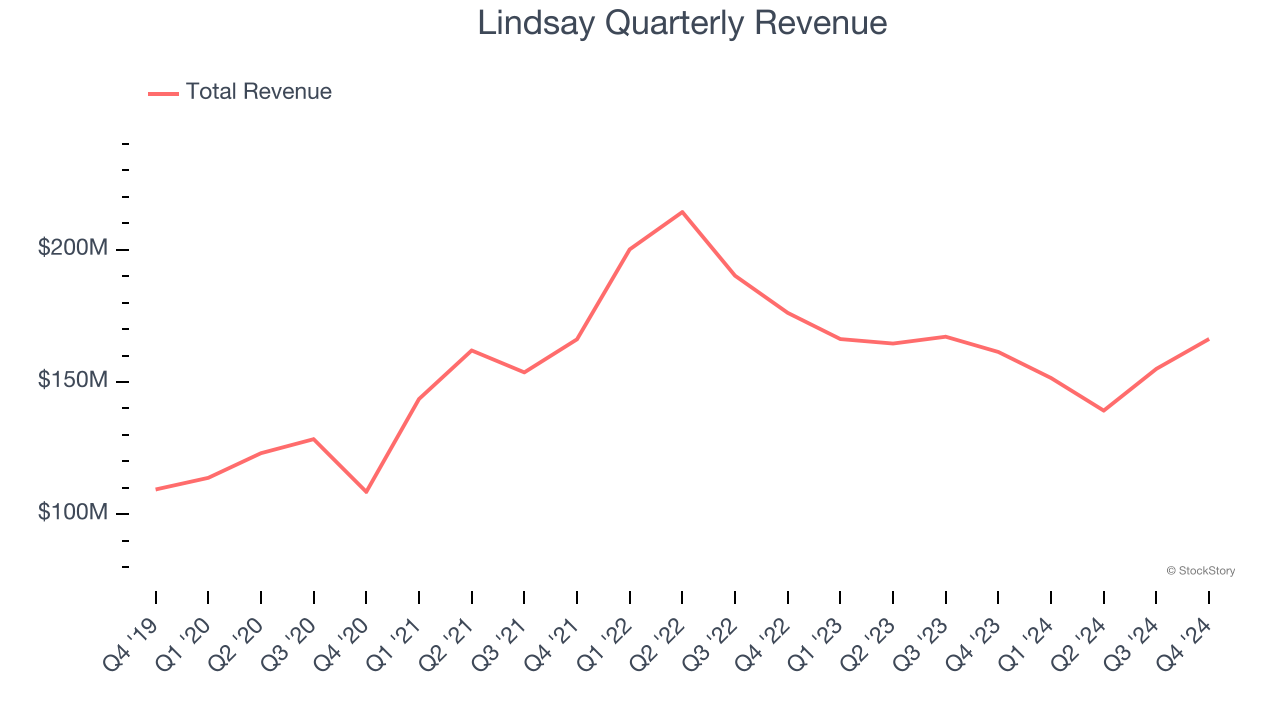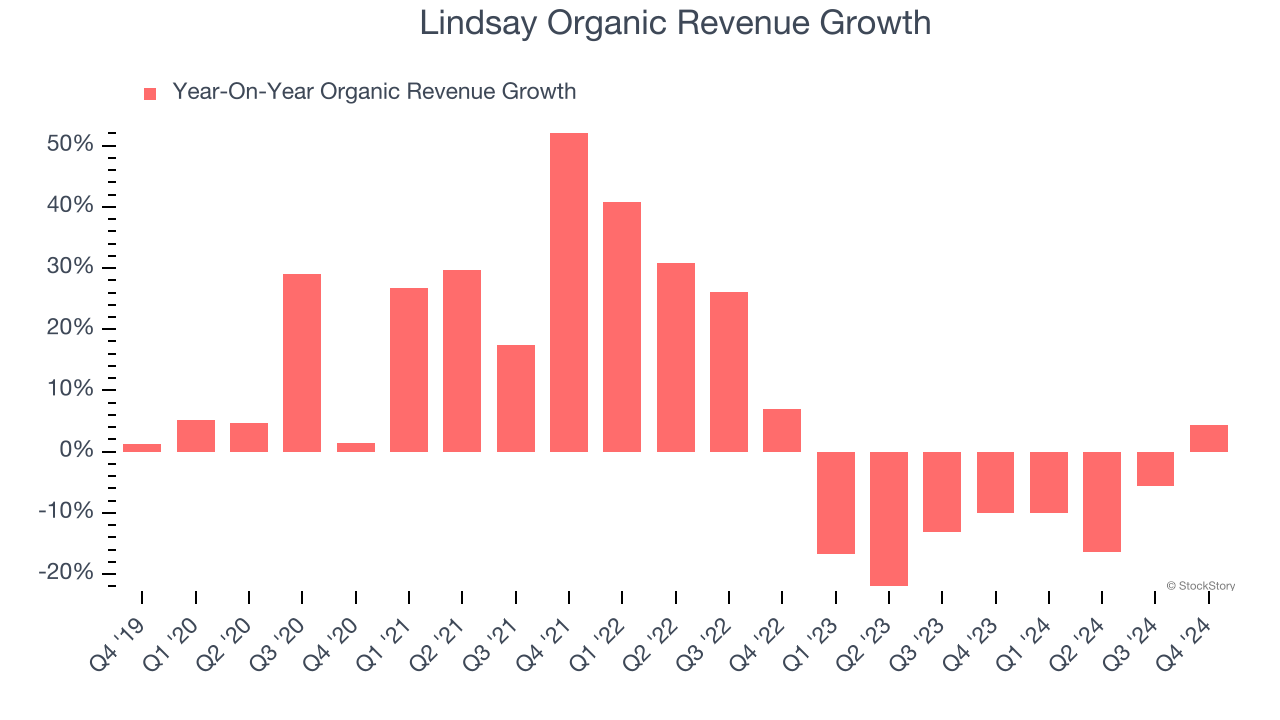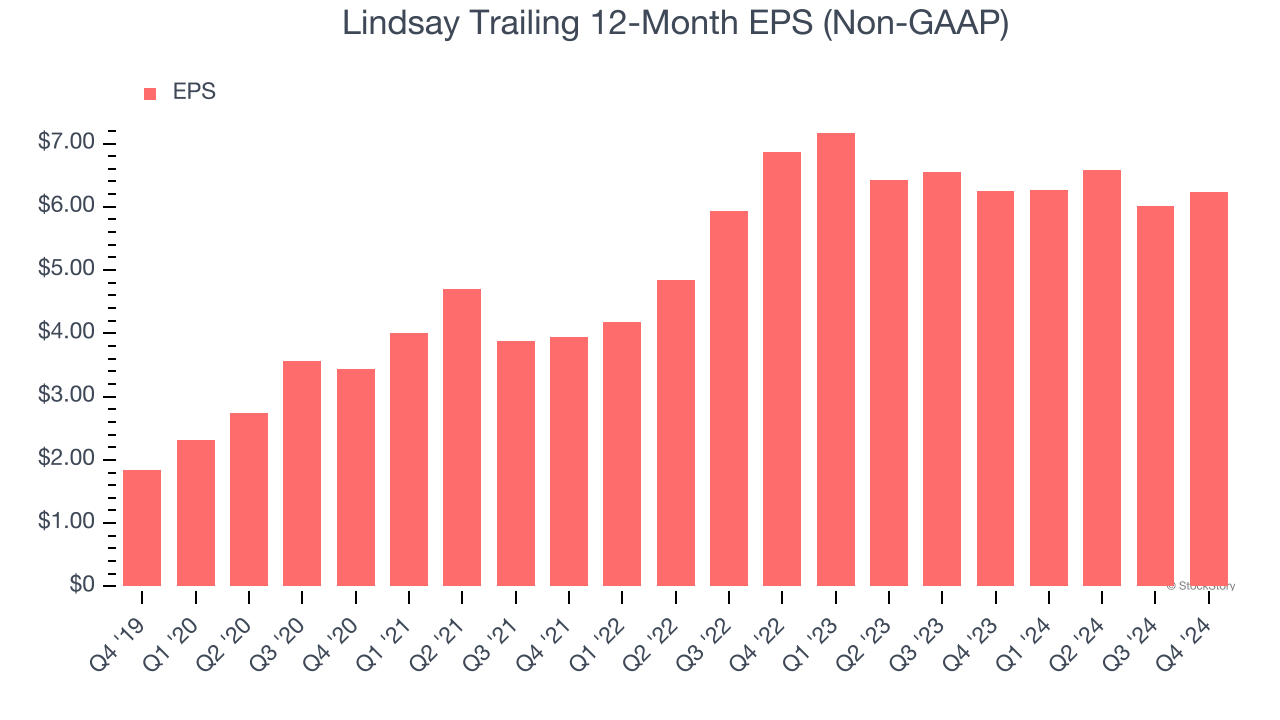
Over the past six months, Lindsay has been a great trade. While the S&P 500 was flat, the stock price has climbed by 6% to $130.19 per share. This was partly thanks to its solid quarterly results, and the run-up might have investors contemplating their next move.
Is there a buying opportunity in Lindsay, or does it present a risk to your portfolio? See what our analysts have to say in our full research report, it’s free.
We’re happy investors have made money, but we're sitting this one out for now. Here are three reasons why LNN doesn't excite us and a stock we'd rather own.
Why Is Lindsay Not Exciting?
A pioneer in the field of center pivot and lateral move irrigation, Lindsay (NYSE: LNN) provides a variety of proprietary water management and road infrastructure products and services.
1. Long-Term Revenue Growth Disappoints
A company’s long-term sales performance is one signal of its overall quality. Any business can have short-term success, but a top-tier one grows for years. Unfortunately, Lindsay’s 6.7% annualized revenue growth over the last five years was mediocre. This was below our standard for the industrials sector. 
2. Core Business Falling Behind as Demand Declines
In addition to reported revenue, organic revenue is a useful data point for analyzing Agricultural Machinery companies. This metric gives visibility into Lindsay’s core business because it excludes one-time events such as mergers, acquisitions, and divestitures along with foreign currency fluctuations - non-fundamental factors that can manipulate the income statement.
Over the last two years, Lindsay’s organic revenue averaged 11.2% year-on-year declines. This performance was underwhelming and implies it may need to improve its products, pricing, or go-to-market strategy. It also suggests Lindsay might have to lean into acquisitions to grow, which isn’t ideal because M&A can be expensive and risky (integrations often disrupt focus). 
3. EPS Took a Dip Over the Last Two Years
Although long-term earnings trends give us the big picture, we like to analyze EPS over a shorter period to see if we are missing a change in the business.
Sadly for Lindsay, its EPS and revenue declined by 4.8% and 11.5% annually over the last two years. We tend to steer our readers away from companies with falling revenue and EPS, where diminishing earnings could imply changing secular trends and preferences. If the tide turns unexpectedly, Lindsay’s low margin of safety could leave its stock price susceptible to large downswings.

Final Judgment
Lindsay isn’t a terrible business, but it isn’t one of our picks. With its shares topping the market in recent months, the stock trades at 21.3× forward price-to-earnings (or $130.19 per share). At this valuation, there’s a lot of good news priced in - we think there are better investment opportunities out there. We’d recommend looking at an all-weather company that owns household favorite Taco Bell.
Stocks We Like More Than Lindsay
The elections are now behind us. With rates dropping and inflation cooling, many analysts expect a breakout market - and we’re zeroing in on the stocks that could benefit immensely.
Take advantage of the rebound by checking out our Top 5 Strong Momentum Stocks for this week. This is a curated list of our High Quality stocks that have generated a market-beating return of 175% over the last five years.
Stocks that made our list in 2019 include now familiar names such as Nvidia (+2,183% between December 2019 and December 2024) as well as under-the-radar businesses like Comfort Systems (+751% five-year return). Find your next big winner with StockStory today for free.





